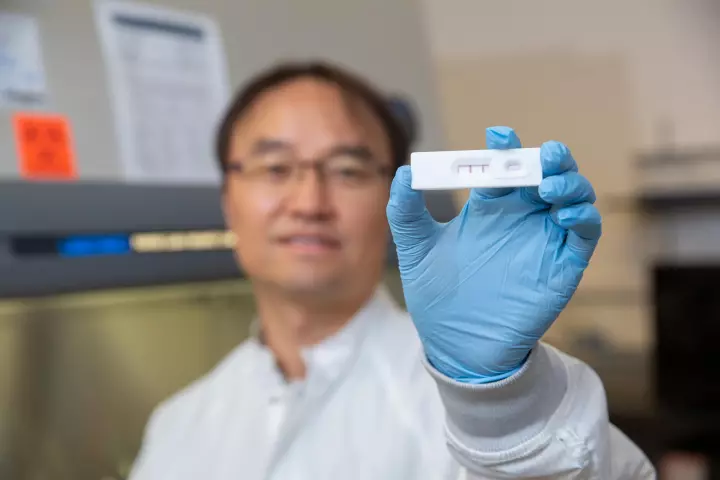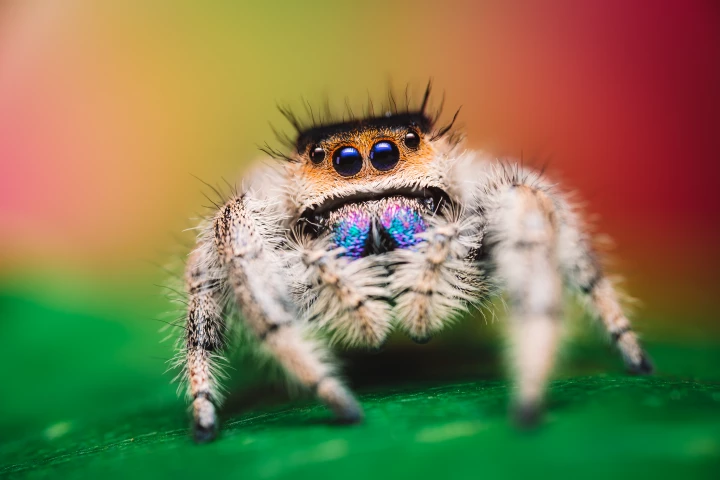University of Cincinnati
-
Pythons have famously cartoonish eating habits, and they might be even better at it than we thought. A new study has found that Burmese pythons can eat even larger prey than was thought mathematically possible.
-
While gingivitis can lead to tooth loss, the bacteria responsible for the gum disease can also enter the bloodstream and cause heart disease. That's why early detection is important, which is where a new home testing kit may soon come in.
-
Burmese pythons are famously known for being capable of swallowing pigs whole, but you have to keep in mind, the snakes themselves are pretty darn big. When it comes to snake-to-prey-size ratio, however, nothing beats the Gans' egg-eater.
-
Age-related macular degeneration is a debilitating eyesight loss, that robs nearly 20 million Americans of their independence. What if understanding this incurable condition and creating better therapies for it starts in the eyes of jumping spiders?
-
Ovarian cancer is marked by low survival rates and a high rate of recurrence despite treatment. But a promising cancer-fighting drug is undergoing clinical trials, providing hope for women whose cancer has returned following chemotherapy.
-
New research has found daily consumption of blueberries in middle-age could reduce a person’s risk of cognitive decline in their later years. The small trial identified several physiological and cognitive improvements after 12 weeks of blueberry supplements.
-
Scientists have observed snakes using an entirely unknown way of getting around. Brown tree snakes in Guam have been spotted climbing objects by wrapping themselves into a never-before-seen “lasso” shape.
-
The mosasaur was likely one of the most ferocious prehistoric marine predators. A previously unknown species of the reptile has now been classified, and it sported a crocodile-like snout that may have allowed it to catch prey that others missed.
-
An extensive search for a hypothetical particle has turned up empty. The sterile neutrino is a proposed subatomic particle that could even be a candidate for the mysterious dark matter, but two new experiments have all but ruled it out.
-
Triglycerides are a form of fat that circulates through the bloodstream, and high levels can lead to obesity and related illnesses. Now, researchers have found a way to efficiently produce a protein that clears these fats from the bloodstream.
-
Stress has some mysterious effects on the human body, with more and more research linking its presence to all kinds of negative health outcomes. Now scientists have developed a new kind of sensor that can be used to keep tabs on stress levels, requiring just single drop of bodily fluid.
-
We're increasingly seeing 3D-printed metal components being used in fields such as aviation, where failures could be catastrophic. It's therefore very important to check those items for structural flaws before they're installed, and the best way of doing so may involve freezing them in ice.
Load More











